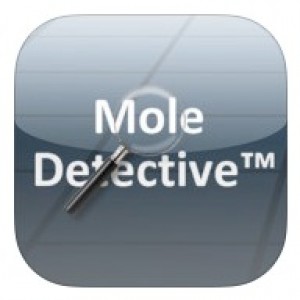 The Federal Trade Commission (FTC) has opened a case to end fraudulent advertisement regarding mobile apps that are supposed to diagnose melanoma through detecting symptoms or pictures of moles. While two marketers, MelApp and Mole Detective, have already agreed on settling and discontinuing with claims that are unsupported, two other marketers did not agree on FTC’s first warnings and the commission will pursue charges against them.
The Federal Trade Commission (FTC) has opened a case to end fraudulent advertisement regarding mobile apps that are supposed to diagnose melanoma through detecting symptoms or pictures of moles. While two marketers, MelApp and Mole Detective, have already agreed on settling and discontinuing with claims that are unsupported, two other marketers did not agree on FTC’s first warnings and the commission will pursue charges against them.
The National Prevention Council’s FTC is the institution that protects consumers against fraud in business, with the main purpose on improving health in the United States. The case of the apps that claim to determine melanoma, even in early stages of the disease, has come to the attention of the FTC, as the commission believes there is a lack of medical evidence concerning effectiveness, as announced by the agency in a press release.
The apps claim they can analyze a picture of a mole and calculate its risk of melanoma as low, medium or high. However, the FTC claims this is fraudulent advertisement, as there is no proper evidence that supports the technique. “Truth in advertising laws apply in the mobile marketplace. App developers and marketers must have scientific evidence to support any health or disease claims that they make for their apps,” noted the director of the FTC’s Bureau of Consumer Protection, Jessica Rich.
The Mole Detective app was developed by Kristi Kimball by New Consumer Solutions LLC and launched in January 2012 with the promise of being able to detect melanoma. Seven months later the app, which was available on both Apple and Google app stores for $4.99, was acquired by Avrom “Avi” Lasarow and his company, L Health Ltd.
The Mole Detective was one of the apps contested and both Kimball and the New Consumer Solutions LLC decided to settle an agreement with the FTC, in which they are prohibited to claim the app is able to detect and diagnose melanoma without truthful and scientifically supported evidence. They are also forbidden to make other misleading or unsubstantiated statements regarding health. The settlement also mandates a $3,930 payment from Kimball.
The settlement also mandates a $3,930 payment from Kimball.
Lasarow and L Health Ltd., however, decided against a settlement, and as such, the FTC is going to pursue a litigated judgment against them. Lasarow claims that by the time of acquisition of the technology Kimball and New Consumer Solution LLC legally warranted that there were no violation of the US advertising laws, which was “accepted as part of a legal due diligence exercise that was completed before transfer and in good faith.”
In addition, Lasarow said that “at no point did L-Health or its directors pro-actively perform further marketing other than within the app store. The MoleDetect application always stated that it should be used for educational purposes only and must not replace a doctor visit,” reason why he and the company are fighting the FTC’s allegations. “We are currently defending our position against the FTC and its complaint and anticipate a US court will adjudicate in accordance with the facts of the case,” he added.
Mel App was developed by the Health Discovery Corporation and entered the online market in 2011, making the app available in app stores for $1.99. As per the settlement, the company is now prohibited to advertise its capacity to detect or diagnose melanoma or any risk factors associated with the disease, as well as to state the capacity of increasing users’ likelihood for early detection of the disease. Additionally, the company will also pay a fee of $17,963.
Update: The article was updated on March 12th to add information about L-Health’s contest of FTC allegations, after a contact from Avi Lasarow.


